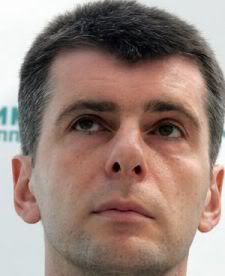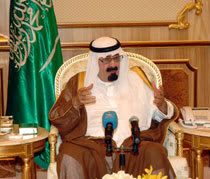The Party’s OverTHE SUNDAY TELEGRAPH:
The businesses that make a living from the Square Mile's high rollers are dreading mass redundanciesAs soon as he felt the heavy hand squeeze his shoulder last Tuesday morning, Jonathan, a banker at Royal Bank of Scotland in London, knew he [was] fired. Obediently, he went through the motions - greeted his boss cheerfully, listened the long talk about the decline of the leveraged finance market and the opportunities elsewhere - before shaking hands, returning to his desk and leaving.
He was one of 200 people who were let go by RBS last week as the bank slashed its European leveraged finance, real estate finance and commercial mortgage-backed securities businesses in London - but believes he was one of the lucky ones.
"At least I was expecting it," said Jonathan, who did not want to provide his full name. "We've had a great run, made a lot of money but frankly we've not been busy for a long time. The writing was on the wall. My wife gave up work after our second child was born last summer as the credit crunch started, so I had to plan. We were due to move to Kensington before Christmas but we're staying in Fulham instead and delayed sending our 4-year-old to private pre-prep school for a year. We've also kept the car rather than upgrading, cancelled skiing and didn't book the house in the South of France for the summer. Others I was working with carried on assuming things would pick up, they've got to make all the cuts now. That's more frightening."
Across London's stalling financial services sector, previously indomitable stars are facing up to the new reality of deep job cuts.
The investment banks have so far avoided the ignominy of being the first to announce redundancies yet all have quietly leaked hundreds of staff. In the next few weeks, a big round of cuts are expected. This weekend, new figures from the Centre of Economics and Business Research predict that nearly 30,000 jobs will be slashed over the next few months. Big banks including Goldman Sachs and Merrill Lynch are expecting to cut more next week. Some commentators are expecting far more, perhaps even the worst slump since the early 1990s.
City veterans drone that finance is a cyclical business. Others say it is time that the extraordinary extravagance and hubris of recent years was reined in.
The bumper bonuses paid to the 350,000 financial services workers has been felt across the capital, from a 20 per cent increase in London house prices to record- breaking parties such as the Ark,
the hedge fund extravaganza that raised £28m over dinner, and modern art multiplying in value by 10 times.
While some may be scandalised by the decadence, the reality is that rain from the high-rolling financiers has watered the rest of the economy too. Hundreds of businesses have sprung up to service the super-rich. Quintessentially, the concierge service employs 1000 people in 45 offices around the world. The Buying Solution is a whole new arm of Knight Frank to deal with huge demand for country houses worth over £1.5m, Fantastic Fireworks for the parties, Famous Fishing for corporate entertainment, while XX, a specialist baggage handling business, booming. Then there are the holiday companies, car dealerships, clothes retailers, golf clubs, restaurants, bars, private schools and armies of domestic workers employed in London and country homes.
UK Economy Faces Tough Times as Credit Crunch Hits Big Spenders in the City >>> By Louise Armitstead | April 13, 2008
The Dawning of a New Dark Age (Paperback - UK) The Dawning of a New Dark Age (Hardback - UK)
The Dawning of a New Dark Age (Hardback - UK)



